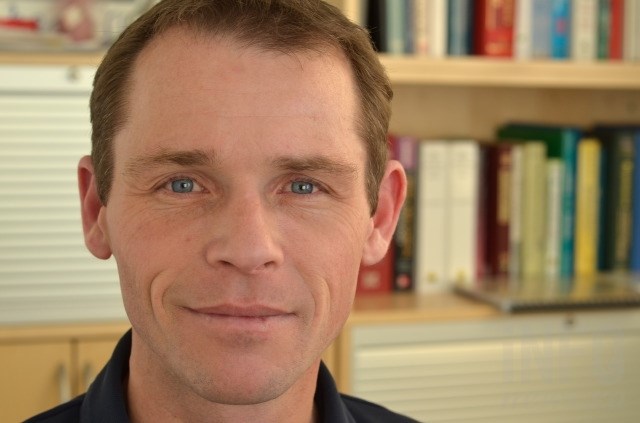
Dr. Chris Spooner is a naturopathic doctor based in Vernon.
(CHARLOTTE HELSTON / iNFOnews.ca)
February 06, 2016 - 12:00 PM
"I'VE HAD PEOPLE WITH STAGE FOUR CANCER SAYING 'I'VE GOT TO BUY IT ON THE STREETS'.... WHO KNOWS WHAT THEY ARE GETTING."
VERNON - If you are a patient looking for answers about medical marijuana, you might end up here in the sunny corner office of Dr. Chris Spooner.
He's a naturopathic doctor at Paradigm Naturopathic Medicine in the Seville Centre on 30 Street in Vernon. He's an expert in botanical medicines, but only delved into the study of medical marijuana about five years ago.
“I had a patient that showed up on my doorstep," he says. "He’d been using it for a tumour in his neck and was having some really interesting results with it. I was going, ‘what are you using?’ He told me about medical cannabis.”
Spooner began reading everything he could find on the plant, from articles in the British Journal of Pharmaceutical Research to cutting edge studies out of Israel, which has a leading research and development program.
Today, Spooner works with over 150 patients to incorporate medical marijuana into their therapies. But, he can’t actually prescribe the medicine.
“A naturopathic doctor can’t technically prescribe medical marijuana. It’s interesting because we tend to get a patient population that’s really more inclined to use medical marijuana,” Spooner says. “It’s like, ‘oh, naturopathic doctors, of course they can prescribe marijuana.’ That’s probably the biggest misconception that we get.”
Unlike medical doctors and nurse practitioners, naturopaths cannot write scripts for medical marijuana. It’s something doctors like Spooner have approached the Ministry of Health about and hope to see changed.
“If medical doctors are hesitant to (prescribe cannabis), what we’re seeing now is patients going out onto the street to get it. I’ve had people with stage four cancer saying ‘I’ve got to buy it on the streets.’ Ultimately, that’s a key issue that motivated me to help patients with this. They’re going out there and who knows what they’re getting.”
Spooner never outright suggests marijuana to his patients due to the legalities, but helps them create a treatment plan if they are already using it and collaborates with dispensaries and medical doctors when possible.
“Most of them are getting it from other sources or have already obtained their licenses and are usually looking for some advice on how to actually use it,” Spooner says.
With a wide variety of strains, concentrations, and products, medical marijuana is no straightforward medicine. You aren’t just taking a pill; you’re figuring out what percentage of THC and CBD works best for you. You’re learning how much to take, and how to take it, be it in edibles, capsules or topical formats.
Spooner is excited and fascinated by what he sees in medical marijuana, but doesn't call it a miracle drug.
“For some patients it works fabulously well, for some it’s a bit of a bust,” he says. “I think it’s incredibly useful, but I think people overstate it when they get on the Internet and say ‘if I do 90 grams of oil in 90 days it will cure my cancer.’ Personally, I haven’t seen it.”
He believes cannabis is most useful as an integrative treatment. With its pain management properties, he says it can be used in conjunction with many other treatments.
“I work with patients doing chemo and radiation therapy, and then we layer on these other things, always being mindful not to overstep interactions with the other therapies,’’ he says.
Much of his expertise with cannabis comes from observing what works for his patients. He’d love to see the plant better studied by researchers, but that could be a long way away.
“Marijuana is not nearly as powerful or as big a gun as chemotherapy or radiation,” Spooner says. “That’s the challenge we find with these types of therapies; the cancer agencies are going to focus on these bigger guns. But what of the supportive therapies we can layer onto that? I think cannabis really does have a role to play there.”
To see how medical marijuana is changing lives in the Okanagan, check back tomorrow, Feb. 7, for part two of our series on cannabis. We’ll introduce you to four patients, from ages 13 to 60, and share their personal stories with the controversial drug.
To contact the reporter for this story, email Charlotte Helston at chelston@infonews.ca or call 250-309-5230. To contact the editor, email mjones@infonews.ca or call 250-718-2724.
News from © iNFOnews, 2016